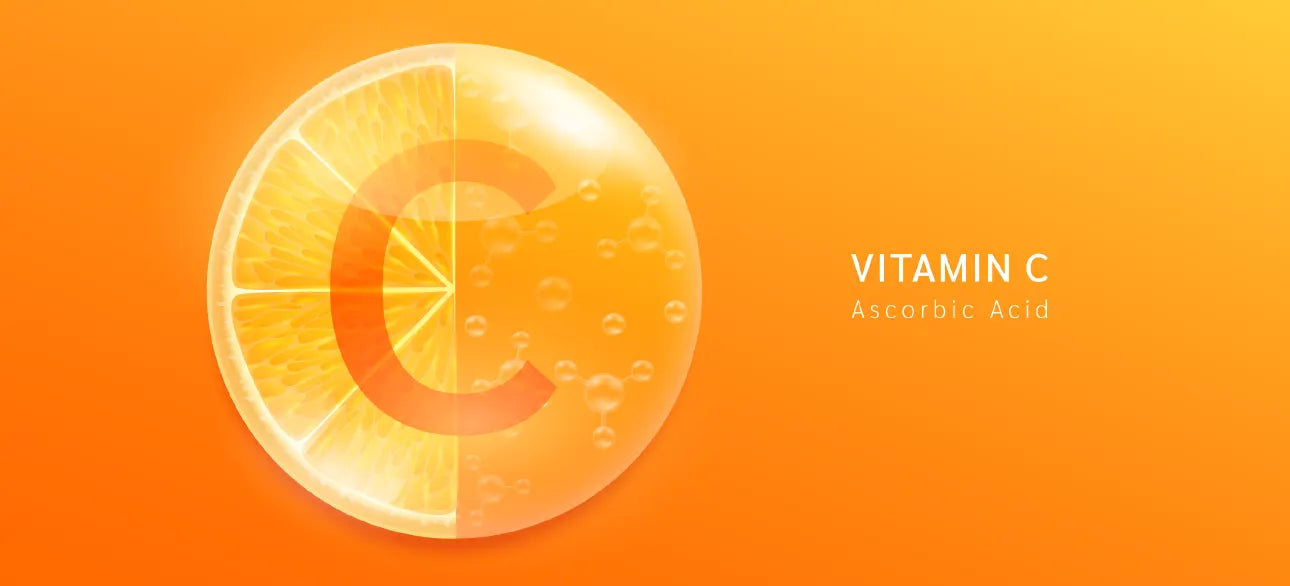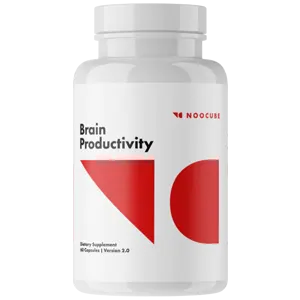Can You Take Vitamin C and Zinc Together?
Vitamin C and Zinc play key roles in boosting immune defense, promoting wound healing, and supporting overall health. Discover how to take them safely and effectively.
Advertiser Disclosure: We independently select all the products. If you click through links we provide, we may earn a commission.

Key Takeaways
- It's safe to take vitamin C and zinc together. These nutrients don’t interfere with each other’s absorption and are commonly found in combination supplements.
- Vitamin C supports immune function, helps in collagen production for skin health, aids iron absorption, and combats free radicals.
- Zinc is crucial for immune defense, wound healing, and plays a key role in brain health and maintaining sense of taste and smell.
- Take vitamin C and zinc with food to avoid stomach upset. Be mindful of doses, as excessive intake may cause digestive issues or interfere with copper absorption.
Walk into any pharmacy during cold season. You'll see countless bottles promising immune support. Most contain vitamin C and zinc. These two nutrients top the list for fighting off sniffles.
Health experts recommend them constantly. Your doctor mentions them during checkups. Friends share success stories about beating colds faster.
Here’s a big question many people ask: Can you safely take vitamin C and zinc together? Do they work better as a team, or do they cause problems? Many people take these supplements every day, but there’s still a lot of confusion. Let’s clear it up once and for all.
What Does Vitamin C Do in Your Body?
Vitamin C works like a superhero inside your cells. This powerful antioxidant fights harmful free radicals every day. Your immune system depends on it completely. White blood cells need vitamin C to function properly. Without enough, your infection-fighting power drops dramatically.
Your body also uses vitamin C to build collagen. This protein keeps your skin smooth and wounds healing. Blood vessels need collagen to stay strong too. Plus vitamin C helps your body absorb iron better. This prevents the weakness that comes from iron shortage.
Here's what makes vitamin C special. Your body can't store it for long periods. It dissolves in water and leaves through urine quickly. This means you need fresh supplies every single day. Too much vitamin C rarely causes serious problems though. Your kidneys simply flush out the extra amounts.
Great food sources include oranges and strawberries. Bell peppers pack more vitamin C than citrus fruits. Broccoli and Brussels sprouts offer plenty too. Even potatoes contain decent amounts of this vital nutrient. So make sure to incorporate these foods into your daily diet for healthy skin, wound healing, and overall strong blood vessels.
Vitamin C is an essential nutrient that plays a crucial role in maintaining smooth and healthy skin. It is also necessary for proper wound healing as it helps in the production of collagen, which gives strength to our blood vessels. Additionally, vitamin C aids in the absorption of iron by the body, preventing any deficiencies that can lead to weakness.
One unique aspect of vitamin C is that our bodies cannot store it for long periods. This means we need to consume fresh sources of this nutrient every day. While consuming too much vitamin C may not have serious consequences, excess amounts are simply flushed out by the kidneys.
There are many food sources that
Why is Zinc Essential for Immunity and Healing?
Zinc powers your immune system like fuel powers a car. This mighty mineral helps create new immune cells. It also helps existing cells work at peak performance. When germs invade your body, zinc springs into action. Studies show it can reduce cold duration significantly.
Your body needs zinc for proper wound healing too. Cuts and scrapes repair faster with adequate zinc levels. This mineral also supports your sense of taste and smell. Without enough zinc, food loses its appeal completely.
But zinc comes with an important warning. Too much can backfire on your health. High doses may block copper absorption in your intestines. This creates a dangerous copper deficiency over time. Excessive zinc also weakens your immune system ironically.
Food sources of zinc include:
- Pumpkin seeds and legumes
- Red meat
- Shellfish
- Nuts and whole grains
Zinc and Brain Health
Zinc is significant to the brain and its clarity. It assists in controlling brain signaling and plays a role in the formation of new brain cells. Adequate levels of zinc are associated with improved memory, concentration, and mood. Conversely, a deficiency of zinc may cause problems such as depression and age-related deterioration. Therefore, sufficient zinc intake, often included in the best brain supplements, can keep your mind sharp and your brain healthy into old age.
Can You Take Vitamin C and Zinc Together?
The simple answer is yes, absolutely. Vitamin C and zinc are commonly combined in immune-supporting supplements. Thousands of products contain both nutrients successfully. Your body handles them well when taken together.
These nutrients don't compete for absorption pathways. Vitamin C dissolves in water and absorbs quickly. Zinc follows a different route through your digestive system. Neither blocks the other from reaching your bloodstream. Many people take combination supplements without any problems.
The timing and form might affect how well they work. Chewable tablets dissolve faster than hard pills. Liquid forms absorb even more quickly. Taking them with food helps prevent stomach upset. But none of these factors create dangerous interactions.
 Can You Take Vitamin C and Zinc Together
Can You Take Vitamin C and Zinc Together
According to Michael Greger, M.D. Chief Science Officer at NutritionFacts.org, The combination of vitamin C, a plant-rich diet, and zinc offers powerful benefits for immune health. Vitamin C and plant-based foods work together to strengthen immune function, while zinc plays a key role in wound healing and further boosting immunity. Together, they create a synergistic effect for optimal health.
Research shows both nutrients play important roles in immune defense and health maintenance. Many studies have tested them together safely.
According to Researcher S Maggini “Supplementation with vitamin C plus zinc may represent an efficacious measure, with a good safety profile, against this infectious viral disease.”
The combination appears in countless multivitamins worldwide. Healthcare providers often recommend both for immune support.
When It Might Be a Bad Idea to Combine Them
Most people can take vitamin C and zinc together safely. But certain situations call for extra caution. Your individual health needs might require special consideration.
Taking both on an empty stomach causes problems sometimes. High doses of vitamin C may cause diarrhea or stomach upset. Zinc can trigger nausea when your stomach is empty. This combination might leave you feeling quite uncomfortable.
Megadoses of both nutrients together spell trouble. Some people think more equals better results. But excessive amounts can overwhelm your digestive system. Your body can only use so much at once.
People with sensitive stomachs should proceed carefully. Those with kidney stone history need medical guidance first. Certain medications might interact with high supplement doses. Blood thinners and cholesterol drugs deserve particular attention.
These concerns apply mainly to extreme supplement use. Normal multivitamin doses rarely cause such problems. Most combination products contain reasonable amounts of both nutrients.
Tips to Take Vitamin C and Zinc Safely
Smart supplement timing and proper intake can make all the difference. Follow these tips to ensure you're taking vitamin C and zinc safely and effectively:
- Take with food: Always take both nutrients with food when possible. This simple step prevents most stomach upset issues. Your digestive system handles them much better this way.
- Space out your doses: Space out your doses if taking high amounts. Take vitamin C in the morning with breakfast. Save zinc for evening with dinner instead. This gives your body time to process each nutrient properly.
- Choose balanced supplements: Look for supplements with balanced ratios between nutrients. A good combination might include 500 mg vitamin C plus 15 mg zinc. These amounts work well together without overdoing either one.
- Stay hydrated: Drink plenty of water when taking any supplements. This helps your kidneys process excess amounts safely.
- Avoid interference with other minerals: Avoid taking them with calcium or iron supplements. These minerals can interfere with zinc absorption specifically.
- Track your total daily intake: Consider your total daily intake from all sources. Food provides both nutrients naturally throughout the day. Add supplement amounts to your dietary intake carefully. Don't accidentally exceed safe upper limits.
By following these steps, you can maximize the benefits of vitamin C and zinc while minimizing potential risks.
FAQs: What Most People Want to Know
Conclusion: The Bottom Line
Vitamin C and zinc make excellent partners for immune support. Both nutrients are essential for the body and can work together safely. Most people can take them together without any problems. Follow recommended dosages and take them with food always.
Focus on getting nutrients from food sources first. Colorful fruits and vegetables provide vitamin C naturally. Nuts, seeds, and lean meats supply plenty of zinc. Supplements can fill gaps when your diet falls short.
Remember that balance matters more than massive doses. Your body needs steady amounts of both nutrients daily. Consistency beats occasional megadoses every single time. These nutrients work best as part of healthy lifestyle habits.
When in doubt, consult your healthcare provider first. They know your medical history and current medications. Professional guidance ensures you're taking the right approach. Your doctor can recommend the best combination for your specific needs.
Smart supplementation starts with understanding how nutrients work together. Vitamin C and zinc prove that some combinations really do work better as a team.
References
Flawless Bloom has strict sourcing policies and relies on primary sources such as medical organizations, academic institutions, governmental agencies, and peer-reviewed scientific journals. Read more about how we ensure our content is accurate, thorough, and unbiased by reading our editorial process.
- Two Faces of Vitamin C—Antioxidative and Pro-Oxidative Agent - PMC https://pmc.ncbi.nlm.nih.gov/articles/PMC7285147/
- The Roles of Vitamin C in Skin Health - PMC https://pmc.ncbi.nlm.nih.gov/articles/PMC5579659/
- Zinc Supplementation Reduces Common Cold Duration among Healthy Adults: A Systematic Review of Randomized Controlled Trials with Micronutrients Supplementation https://pmc.ncbi.nlm.nih.gov/articles/PMC7356429/
- Zinc in Wound Healing Modulation - PMC https://pmc.ncbi.nlm.nih.gov/articles/PMC5793244/
- The effect of Vitamin C and Zn supplementation on the immune system and clinical outcomes in COVID-19 patients https://pmc.ncbi.nlm.nih.gov/articles/PMC9233349/
- A combination of high-dose vitamin C plus zinc for the common cold - PubMed https://pubmed.ncbi.nlm.nih.gov/22429343/






























